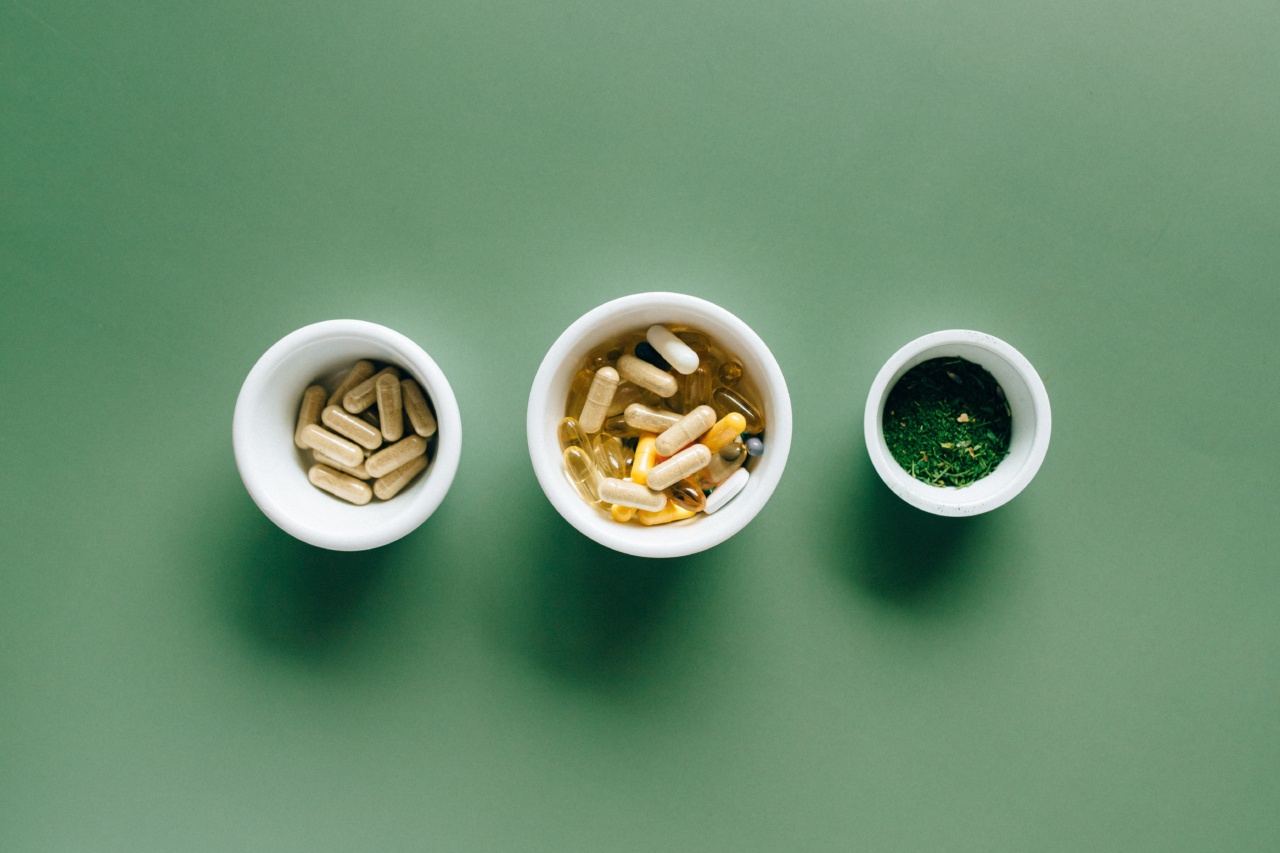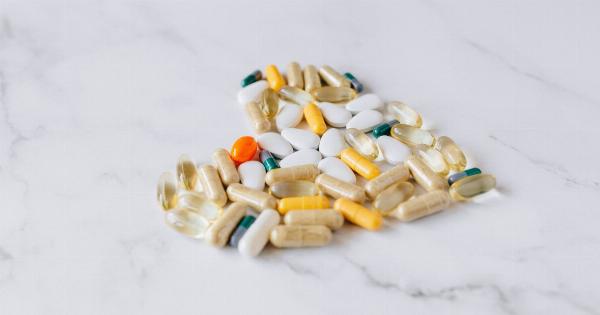Menopause is a natural phase in a woman’s life when her reproductive system transitions and she stops having periods. It typically occurs in women between the ages of 45 and 55, marking the end of fertility.
This hormonal change can bring about various physical and emotional symptoms, such as hot flashes, mood swings, weight gain, and sleep disturbances, that can significantly affect a woman’s quality of life.
Herbal Supplements to Alleviate Menopause Symptoms
Many women seek natural remedies to manage the discomforts associated with menopause. One such avenue is the use of herbal supplements that are believed to alleviate symptoms and promote overall well-being.
These supplements can provide a safe alternative to hormone replacement therapy (HRT) for those who prefer a more natural approach. While the efficacy of herbal supplements may vary among individuals, several have gained popularity for their potential benefits in easing menopause symptoms.
1. Black Cohosh
Black cohosh is an herb native to North America that possesses estrogenic activity. It has been traditionally used to relieve hot flashes, night sweats, and sleep disturbances associated with menopause.
Some studies suggest that black cohosh may help regulate hormonal imbalances and reduce the frequency and intensity of these symptoms. However, more research is needed to determine its long-term effects and safety.
2. Dong Quai
Dong quai, also known as female ginseng, is a popular herb in Traditional Chinese Medicine. It is believed to have hormone-regulating properties and is often used to alleviate menopause symptoms such as hot flashes, mood swings, and vaginal dryness.
While it has been traditionally used for centuries, scientific evidence supporting its effectiveness for menopause symptoms is limited. It’s important to consult a healthcare professional before incorporating dong quai into your regimen, especially if you have any underlying health conditions.
3. Red Clover
Red clover is a legume that contains compounds called isoflavones, which have estrogen-like effects in the body. Some women turn to red clover supplements to manage menopause symptoms, particularly hot flashes.
While research on red clover’s effectiveness has produced mixed results, it may offer some relief for mild to moderate hot flashes. As with any herbal supplement, it’s crucial to discuss its use with a healthcare provider, particularly if you are taking other medications.
4. Evening Primrose Oil
Evening primrose oil is derived from the seeds of the evening primrose plant and is rich in gamma-linolenic acid (GLA), an essential fatty acid.
Women experiencing menopause often turn to evening primrose oil to alleviate symptoms such as breast pain and hormonal imbalances. However, the scientific evidence on its efficacy for menopause symptoms remains inconclusive. Some women may find it beneficial, while others may not experience any noticeable effects.
5. Ginseng
Ginseng is a popular herb used in traditional medicine for its adaptogenic properties, meaning it helps the body adapt to stress. Some women find that ginseng supplements improve their energy levels and overall well-being during menopause.
However, limited scientific research exists on ginseng’s specific effects on menopause symptoms, so its benefits may vary from person to person.
6. Sage
Sage is a well-known culinary herb that has also been used for medicinal purposes. Women experiencing menopause often use sage supplements to manage hot flashes and night sweats.
Some studies suggest that sage may have mild estrogenic effects, which could explain its potential benefits. However, more research is needed to determine its effectiveness and safety.
7. Chasteberry
Chasteberry, also known as Vitex agnus-castus, is commonly used in herbal preparations to address hormonal imbalances in women. While it is often recommended for premenstrual syndrome (PMS), some women also use chasteberry to manage menopause symptoms.
It is believed to influence the hormonal levels of the pituitary gland, indirectly impacting the levels of estrogen and progesterone. However, further scientific studies are required to establish its effectiveness in relieving menopause symptoms.
8. Maca
Maca is a root vegetable native to the Peruvian Andes and is widely recognized for its potential to enhance fertility and libido.
Some women find maca supplements helpful in managing menopause symptoms such as hot flashes, mood swings, and low energy levels. While anecdotal evidence supports its effectiveness, more research is needed to understand maca’s impact on menopause extensively.
9. St. John’s Wort
St. John’s wort is a flowering plant often used to support emotional well-being. Women experiencing mood swings and feelings of sadness during menopause might consider using St. John’s wort supplements. However, it is crucial to remember that St.
John’s wort can interact with certain medications, so consulting with a healthcare provider is essential to ensure its safe usage.
10. Soy
Soy products are rich in isoflavones, compounds that mimic estrogen in the body. Women opting for a more natural approach to manage menopause symptoms may benefit from incorporating soy-based foods or supplements into their diets.
Some studies suggest that soy isoflavones, specifically genistein and daidzein, may help alleviate hot flashes and improve overall menopause-related health concerns.
Conclusion
Herbal supplements can be a valuable addition to a menopause management plan, offering potential relief from various symptoms.
However, it’s essential to remember that herbal supplements may interact with medications or have individualized effects. Consultation with a healthcare professional is crucial before starting any new supplement, particularly if you have underlying health conditions.
While some herbal supplements have shown promise in relieving menopause symptoms, further scientific research is needed to fully understand their effectiveness and safety.





























